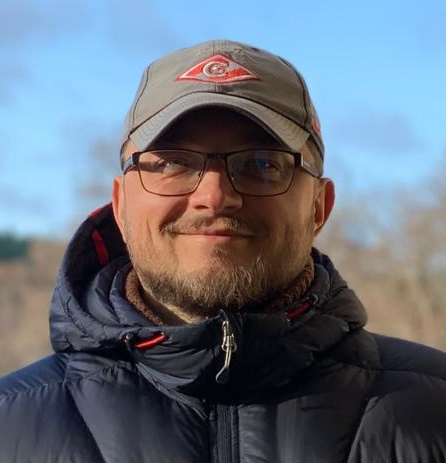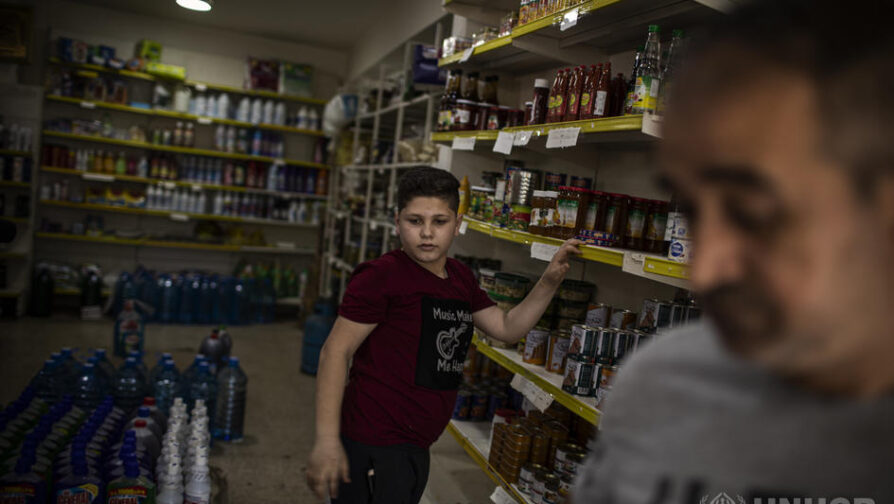“Stories from the Field” is an interview series providing insight into the daily lives of some of our Nordic and Baltic colleagues, working for the organization all over the world.
“I had previously worked as a human rights lawyer in Estonia for nearly 10 years. After the dissolution of the Soviet Union and re-establishment of independence by Estonia in 1991, it took me some time to acquire citizenship and valid identification documents.
Once I had helped myself through that process, I felt that it was important to start helping others in a similar situation. With a background in Law, I wanted to represent minorities and stateless people, or persons with undetermined citizenship, in Estonia.
Working as a human rights lawyer felt very important and useful. I felt like I was born for that. It was an interesting time to work in Estonia – the country re-gained independence, new legislation was introduced, and Estonia acceded to various international conventions. Part of my work was to support Estonia to align national standards and administrative practices with international human rights instruments. Some of my work led to changes of laws, but, most importantly, my work positively impacted the lives of the people I represented.
I chose to work for UNHCR because asylum and refugee rights have always been very interesting to me. It was an entirely new legal area in Estonia in the late 1990s when I started my legal practice, and I became the first lawyer to practice asylum law and assist refugees in Estonia.
When UNHCR opened a legal position in Stockholm in 2007, I decided to apply because it was a new challenge for me, and an opportunity to engage with the situation of refugees from a different angle.”

Andrei Arjupin in UNHCR

“In my role as Associate Protection Officer in Lebanon, I coordinate the provision of legal assistance to refugees. This includes assisting with issues related to legal residency, birth registration and providing support to people who face a risk of eviction or abuse. We also support people with specific needs, such as older people, people with disabilities and people with specific medical needs.
Our aim is to ensure that refugees, stateless people and others of concern to UNHCR can access their rights and are provided with basic necessities. This goal would not be possible to achieve without the support of my highly motivated Lebanese colleagues with whom I work shoulder to shoulder in the effort to assist refugees in these very challenging times for Lebanon.
Currently, we mainly work from home due to COVID-19 restrictions. There are still some missions to the field, which is incredibly important to be able to monitor changes in the situation and speak directly to refugees. UNHCR receives referrals from national and regional partners and NGOs to try to identify solutions.”

Thirteen-year-old Syrian refugee Bakr works in a supermarket and delivers food to support his family in Barja, Lebanon. © UNHCR/Diego Ibarra Sánchez
“Lebanon hosts one of the largest refugee populations in the world, and the highest number per capita. It is a huge burden for the country, which shows tremendous commitment to Syrian refugees and vulnerable populations within its borders. As UNHCR, we support the Lebanese people and Government to provide adequate assistance to Syrian nationals who have been forced to flee – many of whom have lived in Lebanon since 2011, when the Syrian conflict started.
With the current challenging economic situation, access to livelihoods has become even more difficult. There are many obstacles for refugees in terms of employment, which greatly reduces the ability of refugees to secure an income and basic necessities. Alongside its support to refugees, UNHCR also strives to provide support to vulnerable Lebanese nationals who are affected by the economic crisis. This includes a wide range of initiatives such as support to victims of the Beirut blast, winter assistance to municipalities, and supply of medical equipment for hospitals, which provide life-saving support to the poorest populations.”

“During my time at UNHCR, I have worked on hundreds of different cases and situations. The best experience is the overall feeling of being able to help refugees to restore their lives after living through horrible experiences of war, persecution, and violence. The resilience of the refugees I work with inspires me immensely. It is amazing to see refugees’ strength to start a new life in an unknown society – without speaking the language and being unfamiliar with the host society and culture – to then become part of the new country and contribute to its further development.
The experience of working with family reunification is very rewarding. By supporting family reunification, we protect and preserve the unity of families and help them to restore their lives and their basic dignity, especially in cases where children get the opportunity to join their parents. Although the working environment in the field can be very challenging, working with issues such as family reunification is very rewarding. The work we do is about saving lives.
It is also a great feeling when we manage to prevent deportations or secure the release of refugees from detention. In some cases, people are kept in prolonged detention just because they did not have access to legal representation. Children are often detained at police stations and we work actively with partners to visit, monitor and support. Often, we are successful, and the children are released.”
“Although we want to work effectively and be able to see the outcomes, unfortunately this is not always possible due to the magnitude of the problem. There are approximately 1,500,000 people living in Lebanon as refugees – that’s more than the population of my home country, Estonia. It is not always possible to help every person and there are a range of challenges, ranging from lack of funding and human resources to practical, legal, and administrative obstacles.
Despite being an excellent team of professionals doing our very best, our work is never enough to address all the needs. People approach us at all hours of the day. Sometimes we are contacted during the night by women experiencing domestic violence and who are seeking help to find a shelter.
It is very difficult, both physically and psychologically, to see thousands of people in desperate situations and realize that we cannot help everyone. The multiple crises in Lebanon have heightened social instability with tensions increasing as people compete for scarce resources for their survival. The poverty levels among both refugees and Lebanese nationals are sharply on the rise. Nevertheless, together with our partners and the Government we look for solutions and try to deliver as much as possible in these challenging circumstances. ”
Share on Facebook Share on Twitter